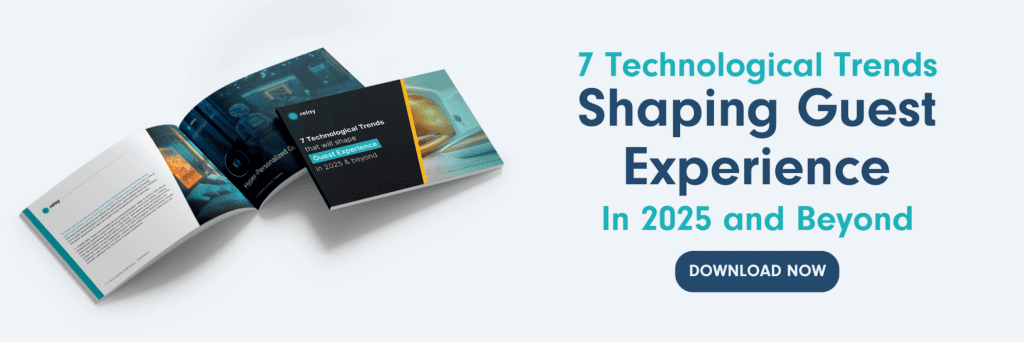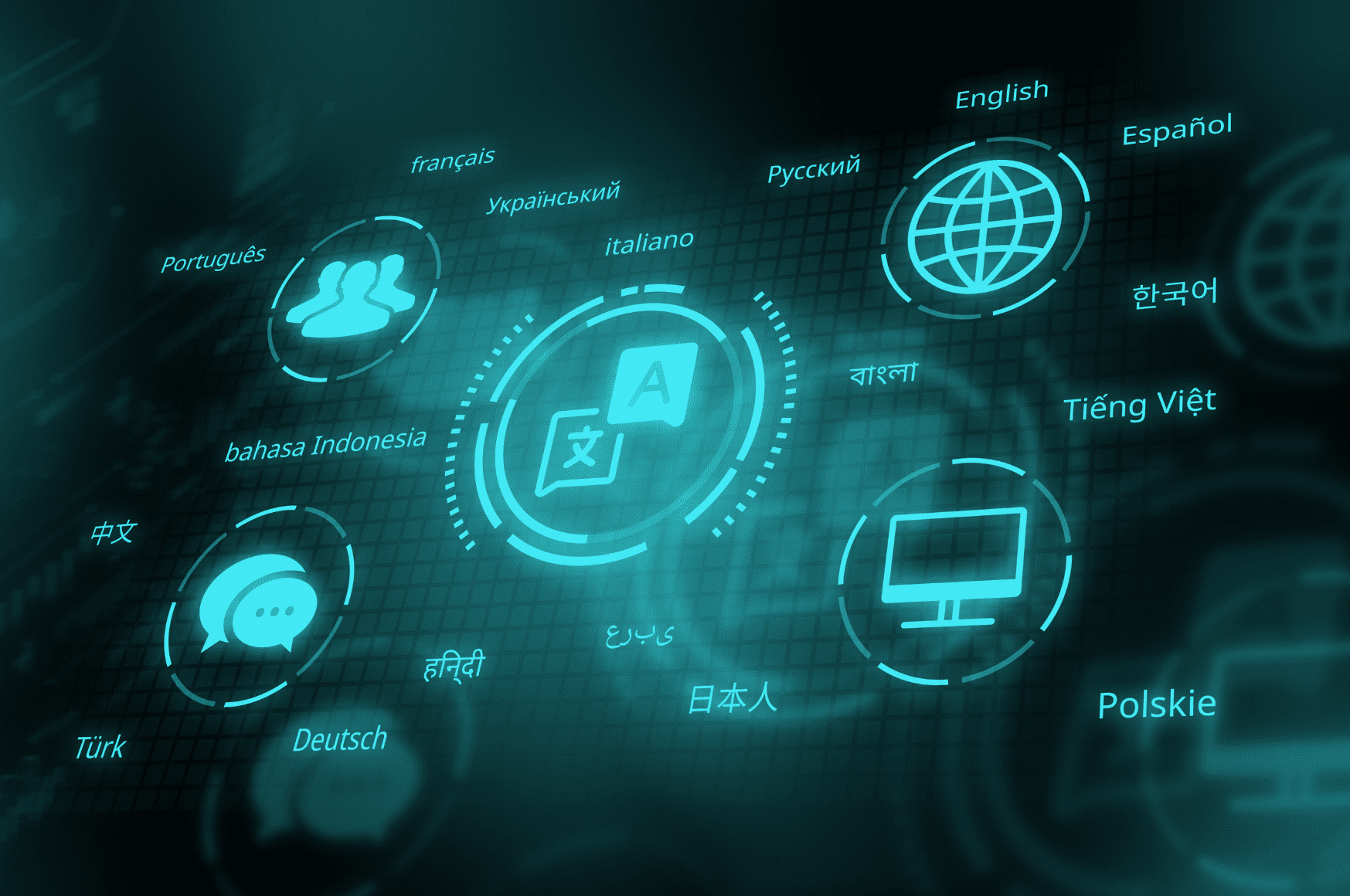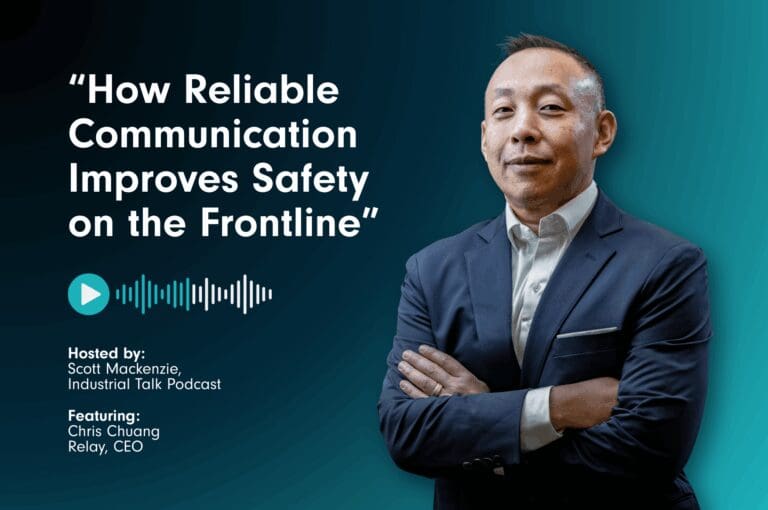Artificial Intelligence (AI) is becoming a big part of hotel operations today because it helps move things faster, smoother, and more efficiently. But let’s address the elephant in the room – some people worry that AI is here to take their jobs away. The truth is, AI isn’t about replacing people, it’s about making their work easier and letting them focus on what really matters, which is creating amazing experiences for guests.
AI takes care of repetitive tasks, so employees can spend more time doing the things only humans can do, like connecting with guests, solving problems creatively, and personalizing experiences. It also supports instant communication and better coordination to boost productivity and safety.
Here’s how AI is empowering employees, not replacing them.
1. Automating Repetitive Tasks
Hotels run on a mix of personal services and daily routines. While the personal touch is irreplaceable, many tasks behind the scenes are repetitive and time-consuming. Tasks like inventory tracking, managing check-ins and check-outs, or updating room availability are essential but don’t necessarily need a human touch. That’s where AI steps in.
AI-powered systems can easily manage these repetitive tasks. For example, AI tools can automatically track inventory levels and alert staff when supplies run low. Similarly, self-check-in kiosks powered by AI can handle guest arrivals and departures quickly while the front-desk staff can engage with guests personally. Even hotel security teams can automate their rounds with these AI-powered tools.
By automating these processes, employees have more time to focus on making guests feel welcome and cared for. Instead of being tied up in routine tasks, they can deliver personalized experiences and go the extra mile. In this sense, AI doesn’t replace human effort. Rather it empowers employees to do their best work where it counts the most.
2. Improving Communication and Coordination
Effective communication is the backbone of any successful hotel operation. From coordinating room service and addressing maintenance issues to responding to guest requests, every team needs to be on the same page. AI tools are making this coordination much easier with real-time communication that’s efficient and reliable.
AI-powered communication platforms keep hotel teams connected at all times. For example, housekeeping can instantly notify the front desk when a room is ready, or maintenance staff can receive immediate alerts about a plumbing issue. These tools eliminate delays caused by traditional methods like phone calls or messages. More importantly, these AI-powered tools often allow teams to communicate across languages in real-time, empowering staff otherwise limited by language barriers.
Clear team communication reduces misunderstandings and stress, allowing staff to focus on their tasks without unnecessary back-and-forth. This, in turn, helps them work smarter and more confidently, improving both job satisfaction and guest experience.
3. Boosting Decision-Making with Predictive Analytics
One of the key ways to make guests feel valued is anticipating their needs. Using predictive analytics and by analyzing guest preferences and behavior, AI tools can uncover patterns and provide insights for better decision-making.
For example, AI can analyze booking history and suggest room preferences, dining options, or even personalized offers for returning guests. It can also predict peak periods for specific services, like breakfast rushes or spa bookings to help employees prepare in advance.
These insights give staff the information they need to deliver exceptional service. Instead of guessing what a guest might want, employees can confidently offer tailored recommendations or solutions. It’s like having a virtual assistant that takes care of the data crunching, leaving the human team free to focus on connecting with guests and creating memorable experiences for them.
4. Supporting Training and Skill Development
Training is an important part of keeping hotel teams sharp and ready to deliver great service. But traditional training methods can be time-consuming, inconsistent, and sometimes less engaging. AI is changing the game by making training smarter, faster, and more personalized.
AI-powered training platforms allow employees to upskill at their own pace. For example, new hires can use interactive modules to learn about hotel procedures, while seasoned staff can explore advanced skills like conflict resolution or upselling techniques. Virtual simulations also provide realistic scenarios, helping employees practice responding to guest situations without the pressure of real-time interaction.
On-the-job learning also gets a boost from AI. These tools can provide immediate feedback and guide employees to improve their performance in real-time. This means less trial and error and more confidence on the job.
With AI as a training partner, hotel employees are better equipped to handle challenges and deliver exceptional guest experiences.
5. Improving Safety and Incident Management
Safety is a top priority in the hospitality industry, not just for guests but also for employees. Hotels can be busy, unpredictable environments, and staff often face high-pressure situations that require quick action. AI is stepping in to make safety management smarter and more proactive.
For example, Fairfield and TownePlace Suites of Norfolk uses AI-powered communication devices to help staff respond to emergencies faster by immediately alerting the right team members. Whether it’s a maintenance issue, a medical emergency, or a security concern, employees receive accurate location information and real-time messages, so they can act quickly.
Moreover, AI-powered systems can monitor real-time data from sensors, cameras, and other devices to detect potential safety issues before they escalate. By automating alerts and providing clear protocols, AI reduces the burden on employees during critical situations. Staff no longer have to waste precious moments figuring out what’s happening or who to contact. AI takes care of that, letting them focus on resolving the issue safely and efficiently.
For hotel employees, this means working in a safer environment with the support they need to handle incidents confidently. AI doesn’t just improve safety processes; it reassures employees to feel valued and protected while they deliver excellent service.
AI as a Valuable Ally in the Hospitality Industry
AI is proving to be a game-changer in the hospitality industry, but not in the way some might fear. Rather than replacing employees, AI is empowering them to do their jobs better and more efficiently. From improving communication and automating repetitive tasks to informed decision-making, training, and safety, AI is a supportive tool that allows hotel staff to shine in their roles.
Want to explore more ways AI can support your team? Our eBook, 7 Technological Trends Shaping Guest Experiences, delves deeper into the trends transforming guest satisfaction and hotel operations.

Download your copy today to discover even more ways AI can empower your staff and help you stay ahead in the competitive hospitality industry.




